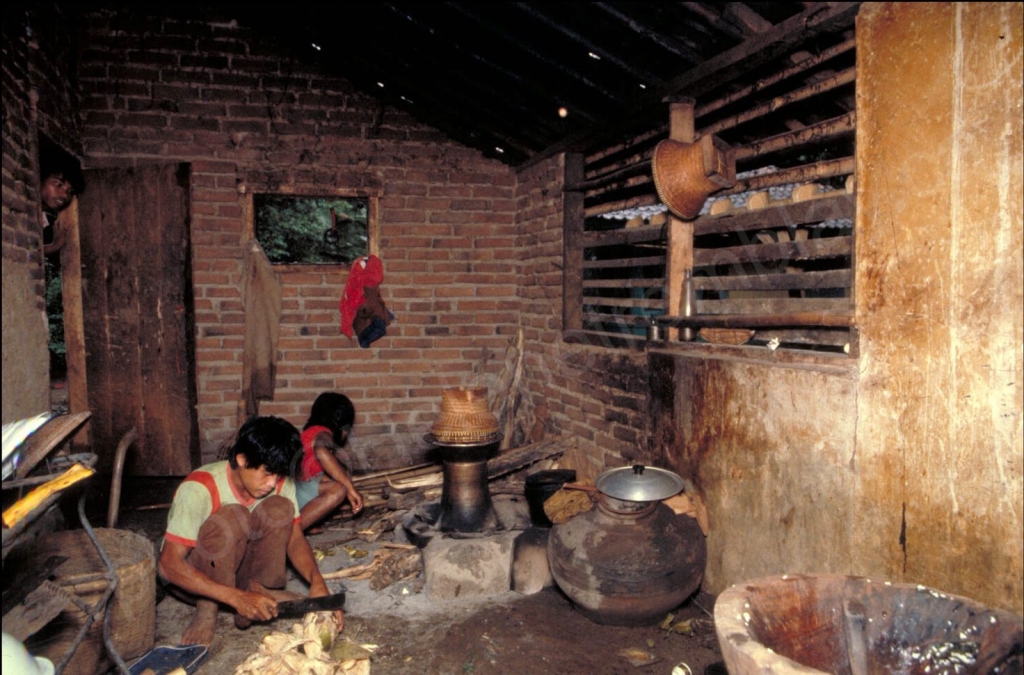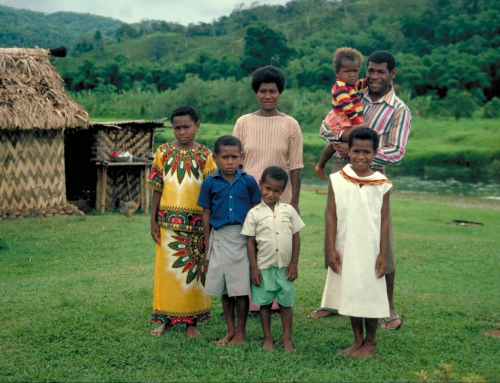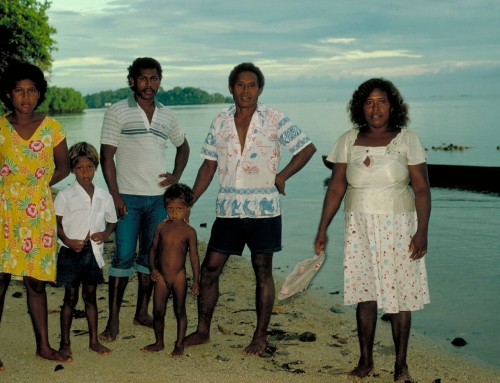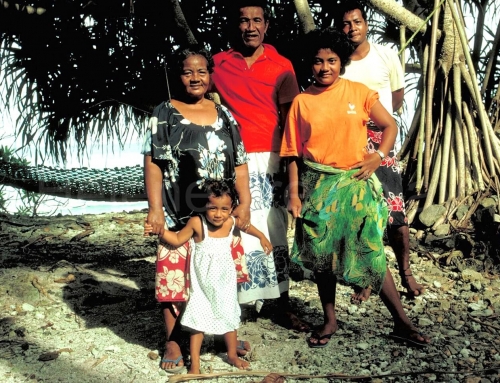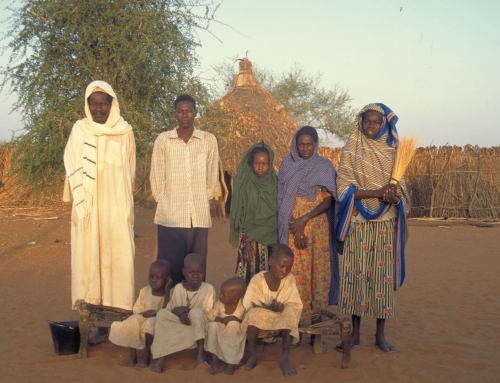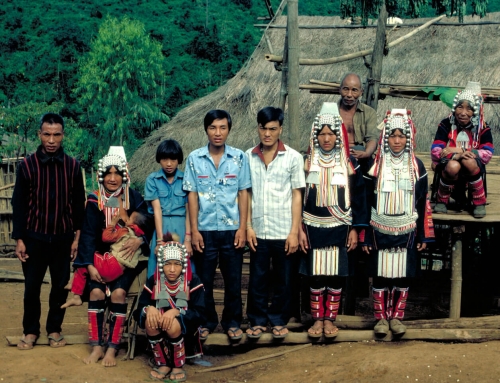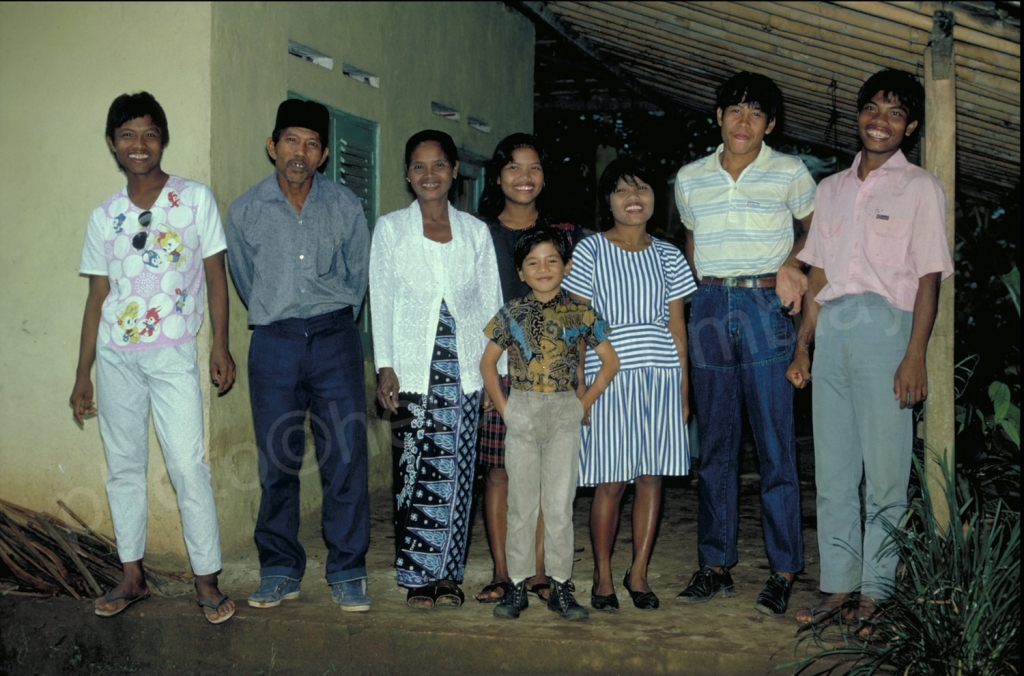
Amin bin Karta’s Family
Amin bin Karta, aged 56
Tasem, 47
Suparsi, 27 (absent)
Carmina, 22 (absent)
Ojok, 19 (absent) Casdpin, 17
Alisa, 15
Kurnaisih, 14
Kusnadi, 13
Taryono, 8
Dadi bin Amin (son-in-law), 22
1 bull 5 sheep
100 bebek (ducks)
2 other ducks and ducklings
1 rooster
4 hens and chicks
Kampung Cikundang,
Java January 1st
Rice planting season
4:00 The gentle sound of the scattered drops from last night’s rain falling from the trees is suddenly drowned out by the voice of the baduk calling the uduk (Muslim morning prayers). Tasem gets up and goes to the red brick shed that serves as kitchen. She squats on the dirt floor in front of the fire and lights dry branches. The oil lamps are already lit in the neighbouring houses where two of her married daughters live. The family starts work early during rice planting season, when they are all employed by a farmer. Suparsi and Carmina leave with their husbands to work in the rice paddies. Their 15-year-old sister, Alisa, who lives at her parents’ with her husband, quickly swallows a bowl of cold rice in the kitchen before following her sisters. Tasem’s 19-year-old daughter, Ojok, is the only absentee. Now divorced for the third time, Ojok is away, training to work as a family maid in Saudi: Arabia. She is the only child Tasem and Amin are a little worried about. They say there are all kinds of stories about workers who have never been heard of again after going abroad.
Amin bin Karta comes out into the wet, muddy yard, lighting his way to the well with a torch. He draws a pail of water to shower before his morning prayers. Back in the house’ s main room, he covers half his body with a white sarong and his head with a prayer cap, and kneels beside the bed where his eight-year-old grandson, Taryono, is sleeping. Taryono is his daughter Suparsi’s son from a first marriage. When the boy’ s mother remarried four years ago and moved next door with her new husband, Taryono did not want to move. Amin bends his head down to the floor, facing Mecca, and repeats the words he has said since he learned the uduk as a child. Then he sits on his bed, rolls tobacco in a palm tree leaf, lights his cigarette and calls to his two sons, Kusnadi and Casdpin, sleeping in the bunk beds adjacent to his. Kusnadi quickly performs his ablutions at the well, returns and kneels to repeat the same words as he bends his head to the prayer carpet.
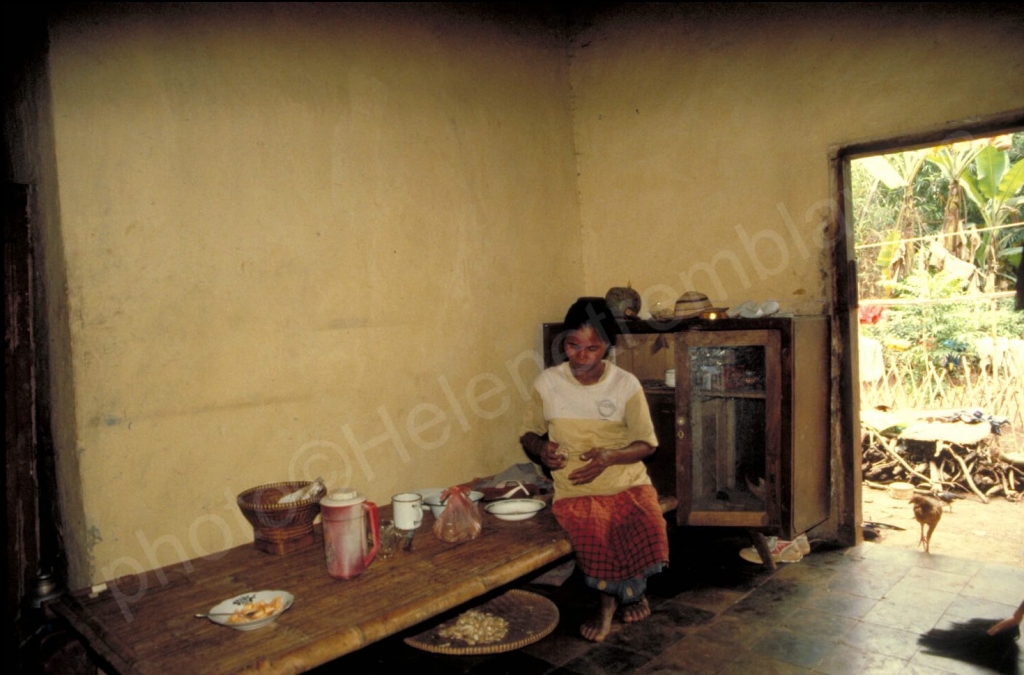
No more land available
5:00 The light of day is rising, and Tasem is tossing rice on her woven tray to sort out the bad grains. She will spill some. It’s not clumsiness but her desire to make the animals happy that sends some to the ground.
6:00 Kurnaisih attends school in the afternoon, so she helps her mother with morning household chores. Her elder brother Casdpin walks to the road to catch the bus to school. With a sure-footed step, he traverses the muddy ridges of two rice fields. His step mirrors his confident attitude about his future. Kurnaisih has enrolled in the Agricultural High School to study farm technology and mechanization. His father sa ys dryly: “Rice will al ways be hand-made.”
Amin leaves home with his hoe on his shoulder. Today he will flood some of his paddies by damming the small dirt canals that crisscross the fields, to divert water onto his land. This irrigation permits him to harvest two crops a year. In the course of many years, Amin has managed to buy 1.4 acres of land, which he has divided in 20 petak (square partitions) bordered by the elevated ridges of the canals. But this small amount of land is not enough to meet the family’s needs and Amin also hires himself out as a farmhand. His sons-in-law have no land because there is no more land available, and they, too, must work for other farmers.
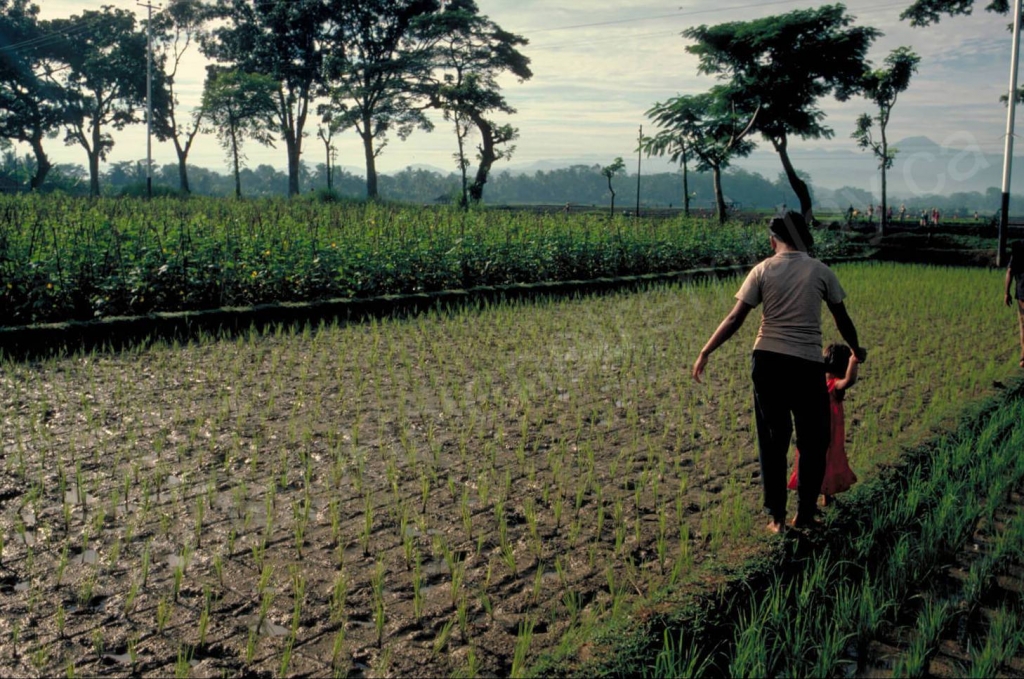
13,667 islands and colonisation
The island of Java is one of the most densely populated regions in the world. The roads are lined with houses like a never-ending city. Beyond the buildings are rice fields. This morning they are full of people. Men drive skinny bulls pulling ploughs or toss bunches of rice shoots into the paddies for the women to plant, bent over in the water, a bobbing row of straw hats. Men and women both work in mud and water up to their knees.
Indonesia is a country of 13,667 islands. Sixty percent of the population live on Java and Bali, where the land is best. The government would like people to move and colonise other still-forested islands under a resettlement programme. But for Amin’ s daughters and sons-in-law that is a bold step: it means choosing to separate from family and community, to cut through the dense jungle and risk attack from herds of elephants, wild pigs, bears, tigers and snakes. For now, Amin’ s daughters will stay near their parents and Suparsi and Carmina are strong-willed enough to influence their husbands.
His business is prospering
Kusnadi goes off with his 100 bebek (a type of duck) and five sheep. Unlike his brother Casdpin, he is a school dropout. His father did not question his decision. “If he prefers to work, let him work,” says Amin. And he works very well. He started with just five bebek, sold their eggs, saved the money and bought more ducks. Now his little business is prospering. Amin refuses the money Kusnadi offers him and encourages his son to invest more. Kusnadi can be seen all morning happily walking his bebek along the fields. The feathered creatures follow each other and hunt for snails. At night, Kusnadi will give them menir, fine bits of rice left after the threshing.
After coffee and rice with a spicy sauce on the side, Tasem, like everyone else, will spend her morning in the fields. She wanders along the ridges, cutting long grass to feed the bull, laying the bundles on the ridges. Later Amin will come with two baskets balanced on his shoulders and collect the grass. After feeding the bull, he will take its dung back to use as fertilizer in the fields.
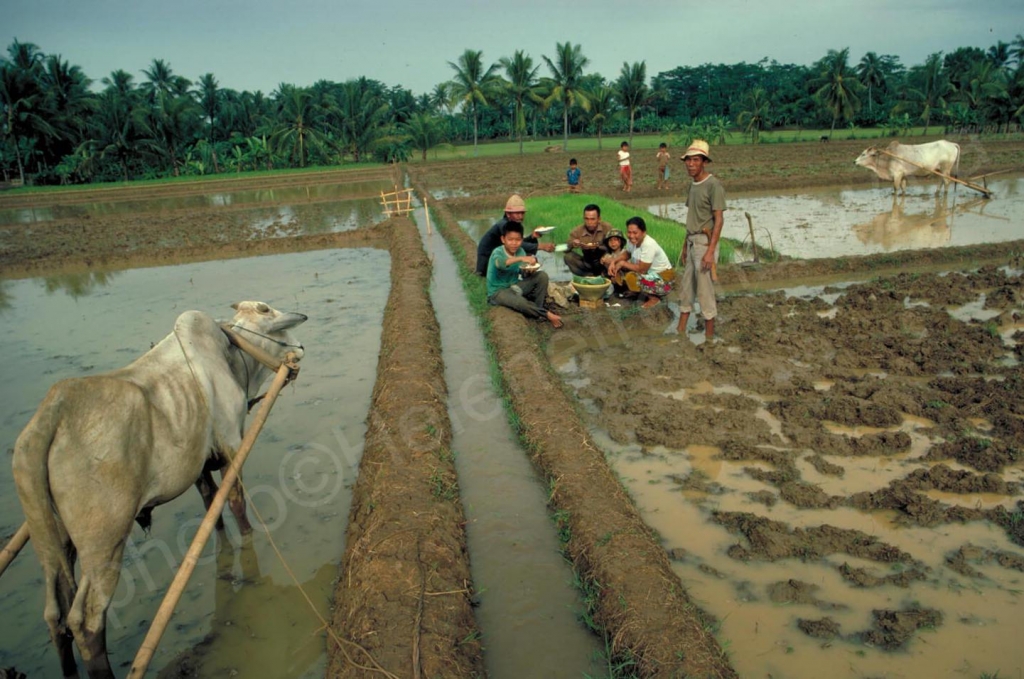
Both men and women work with bullocks in the muddy rice paddies to prepare each square for planting. Lunch – rice and fish with a spicy sauce – is taken squatting on the ridge of the canal from which they will flood the fields.
She will offer eggs instead of cash
12:00 After cutting the grass and weeding one petak, Tasem comes back home, collecting papayas along the way from one of the numerous fruit trees that grow around their land. There are exotic fruit such as rambutan, durian, and kedongdong, as well as the more familiar coconut, banana and pineapple – all good supplements to the daily diet of rice and seasonal vegetables.
When Tasem gets home, her daughter Alisa is sitting on the courtyard bench. Most workers sit on the ridges to have their lunch, but Alisa was not far and preferred to come home. She washes, prays, sits clown on the floor with a bowl of rice and vegetables and is off again. This afternoon she will weed instead of plant. In the kitchen, Kurnaisih has eaten some rice and is preparing to go to her afternoon classes.
With some trepidation, Tasem heads off to the mill to buy rice chaff to feed the animals. At the mill she walks in silently, staying close to the wall. Tasem does not have money to buy the chaff and she will offer the mill foreman eggs instead of cash. She knows he will yell at her – “Everybody wants to give me eggs, I need cash, too” – but finally he will agree. “This is the last time,” he always says. The proud Tasem would rather not go through this humiliation.
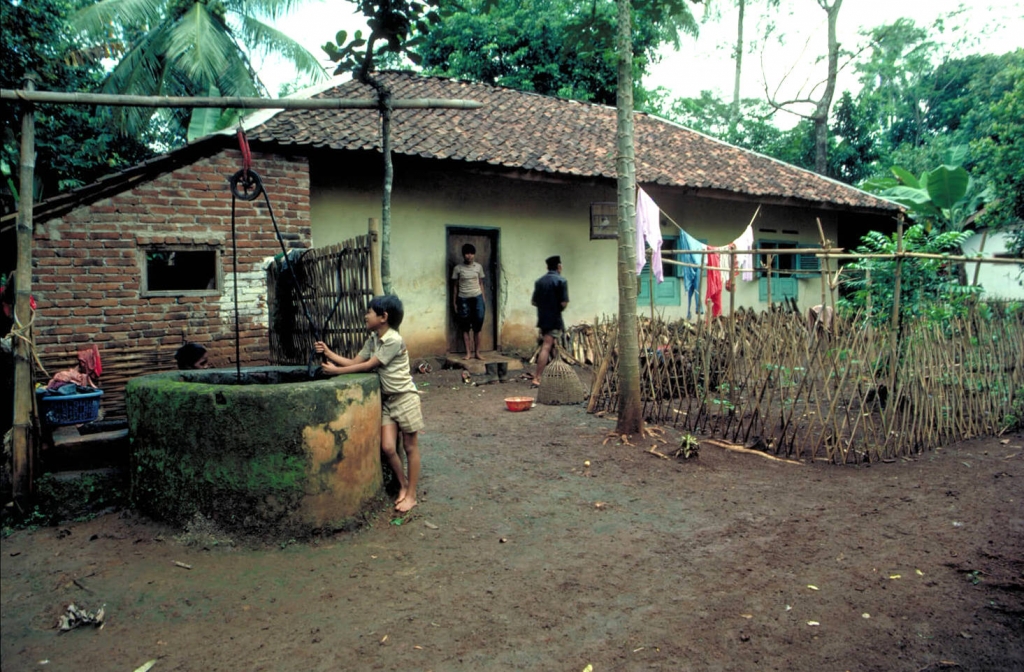
Amin bin Kart a’ s typical Javanese tile-roofed house is densely populated, like Java itself. His son raises ducks, so many that the vegetable garden has to have spikes to keep them out.
Rice and meat more and more often
2:00 The afternoon rain has started. Tasem takes down the clothes that have been drying for the last two days. With luck they will be dry tomorrow. She then squats in the kitchen and starts preparing food for the evening meal. With a pumpkin, ground coconut and strong peppers, she makes the accompaniment for the rice. Now there is rice and chicken and meat more and more often. It was not always so. Amin and Tasem remember the days when eating one little piece of meat was one of the great events of the year. Then the country did not even produce enough rice to feed the whole population. Amin’s sons eat better than he did, and he is proud to see them growing strong and tall.
4:00 The rain has stopped. After a nap, Amin goes back to plow his small cassava garden. Before sunset, he stops in a petak to weed a row of rice. As he walks back home, he checks his crops, looking for that first shaft of rice. The farmers say the harvest comes 40 days after its appearance.
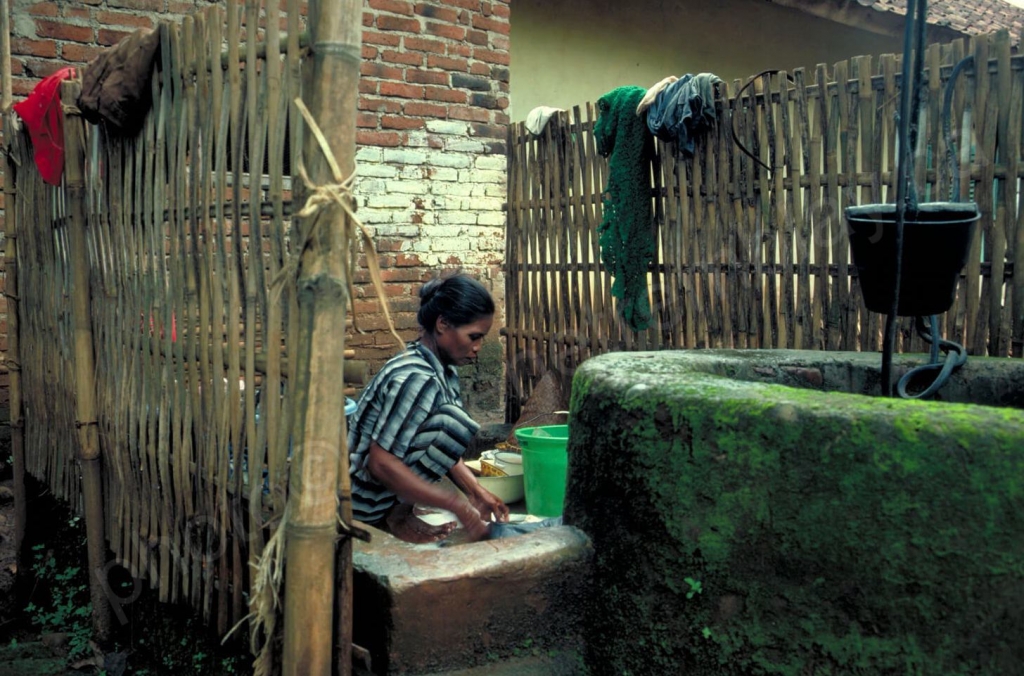
Keeping the ghosts away
6:30 Tasem and Kusnadi must feed the ducks rice · gruel and grass, so they are the last to sit down at the eating mat. There is not much dinner conversation: everyone listens to a government programme on the radio giving advice to farmers. This year the rice harvest is threatened by an insect that may destroy half the country’s production. Kurnaisih steps out and goes to the village to watch television in one of the two homes in Kampung Cikundang that have a set. People here cannot afford to have electricity installed let alone a television.
8:45 With no electricity- just two small oil lamps to light the entire house- and with the morning prayers coming so soon, everybody goes to sleep as the battery-operated radio plays. An oil lamp stays lit in one corner to keep the ghosts away.
